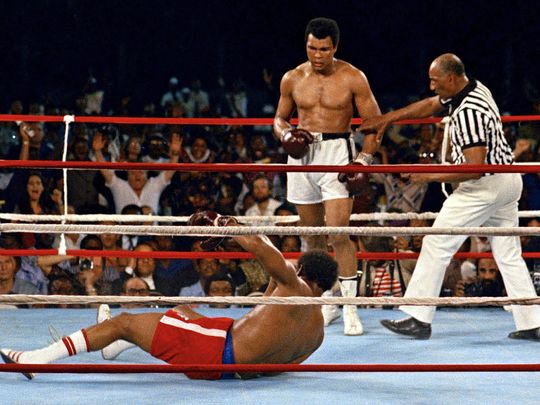Successful Nonprofit Arts Organizations, Like Successful Buildings, Depend on Successful Hierarchies
Level One:
Bricklayers. Carpenters. Stagehands. Electricians. Actors. Musicians. Painters. Singers. Writers.
Easy to find hacks. Difficult to find experts. Project-based.
Level Two:
Foremen. Department heads. Designers. Curators. Musical directors.
Small universe of successful ones. More skills required. Still project-based. Work toward a larger goal than Level One, namely a finished piece. Excellent collaboration skills.
Level Three:
Contractors. Directors.
Smaller universe still. Hire and manage Level One and Two (no requirement to perform at their skill level). Work toward a slightly larger picture, although still project based.
Level Four:
Architects. Executive/Artistic/General/Producing Directors.
Scarce universe of specialists. Determine “what.” Hire Level Three – several Level Threes, in fact. Understand projects, themes, and cohesion.
Level Five:
Owners. Boards.
Tiny, zealous universe. Hire Level Four. Determine “how.” Has personal stake.
Level Six:
The Community. The Mission.
Top of the hierarchy. Determines “why.”
Transformational Persuasion: Muhammad Ali, George Foreman, Donald Trump, Hillary Clinton, and Why It Matters – Especially When You’re Running an Arts Organization
Muhammad Ali died last week. A quote from a Zairian in “When We Were Kings.”
“George Foreman? We had heard he was a world champion.
We thought he was white, then we realized he was black, like Ali….
Ali said [about Foreman], you’re the out-of-towner here.”
Nonprofit leaders that manage organizations, programs, and people well can be quite successful. But not transformational. Transformational leaders effortlessly persuade with passion about the mission, not the statistics. Their material requires no script, just practice to remove the “ums” and “uhs.”
Trump, for example, vigorously (and effortlessly) transforms experienced opponents into “out-of-towners.” Clinton relies on effective policy, experience, and “being right.”
Passion KOs policy every time. Ask George Foreman.
Doesn’t your arts organization’s constituency deserve the most transformative experience you can offer? Or do you settle for production excellence and competence?
Nonprofit Arts Board Members, Executive Directors, and Staffs: Has Your Board Been Assimilated? Have You?
Board membership for a nonprofit arts organization is a privilege. It requires commitment of time and money. It requires the urge to change things for the better.
It’s not for self-aggrandizement. It is not about being thanked endlessly. It’s not about banquets, galas, and being fed.
It’s a job.
Group thinking can be inspirational, but “groupthink” can poison your organization’s health. When your board only votes unanimously, for example, or the newly-approved mission is just reverse-engineered to current activities and reduced to pabulum, you may no longer have a board. You may instead have a Borg.
Borg members wait for orders. They don’t debate. Resistance is futile.
The Borg is powerful. Borg Presidents lead by autocracy. Borg Queens (often founders) drive staff away by insisting the organization’s activities revolve around them. Borg Drones atrophy.
Board or Borg?
Special 2016 “Alan Harrison’s Birthday” Edition: Pack Up the Babies and Grab the Old Ladies – And an Easy-To-Fulfill Wish List

I was born on May 14. Conceived on a hot August night. Neil Diamond would’ve been proud. He was old enough to have a kid then, so…who knows? Brother Love? Are you my papa?
From him, I want flowers.
From you, I want (this is your cue):
- A 137-word card. ( <–Yes, that’s a link.)
- Share your favorite 137 Words post with your social network (that’s “share,” not “like”).
- To join a great company with a great mission. In Seattle.
- Health for The Kid.
- Guidance for The Kid.
- The love of my life to be happy, fulfilled, and curious. You know who you are.
- The ability for you to guide your favorite nonprofit to safety, security, and success.
- Brilliantly measurable missions, better than you believe you’re capable of.
- Complete, successful execution of those brilliant new missions.
- Pie, not cake.
Nonprofit Arts Executives: After the Ask (for anything, actually), It’s Fast “Yes,” Slow “No”… Try a Slow “Yes” Instead
If you don’t hear right away, it’s probably “no.”
That goes for asks, offers, hiring, and anything else you require.
And that goes for you, too, when your stakeholders ask, offer, hire, and anything else they may require.
Reflection is the predictable path toward rationalization to the “no.” This is why the phrase “upon reflection” is almost always followed by a version of “we’ve decided not to change.” After all, as a rule, it’s easier not to change than to take a risk.
Many arts charity executives preach the glory of “managed risk” (an oxymoron, of sorts) and value fiscal responsibility above social impact. To be clear, social impact is central to the success of the mission; fiscal responsibility is a valuable business practice.
If “yes” leads to greater impact, then stop saying “no”… especially upon reflection.
The Paradox of Simplicity: Success Begins with Better, Not More
There’s a saying that every weapon that’s been invented has been used. Or will be.
Similarly, every technological advance of the last 30 years has been used. Or will be.
More avenues of communication. More personalized offers. More database data. More news. More marketing. More music. More art. More words.
Not “better.” “More.”
This is not code for “I’m old and yearn for a simpler time.” I’m not and I don’t. What I yearn for is a better time.
Regardless of how many ways key information is dispersed, some folks just don’t consume it. And that’s on you.
I should know. You may be engaging with this post (and thank you), but others who could, don’t. And that’s on me.
A blown basketball pass is the passer’s fault. But a bad pass isn’t solved with throwing more basketballs.
Arts Organizations: 137th Post, 137 Thanks, and 137 (of Other People’s) Words That Guide Inspiring Leaders
“We must reject the idea — well-intentioned, but dead wrong – that the primary path to greatness in the social sectors is to become “more like a business.” Most businesses…fall somewhere between mediocre and good.” (Collins)
“If a man does not keep pace with his companions, perhaps it is because he hears a different drummer. Let him step to the music which he hears, however measured or far away.” (Thoreau)
“People don’t buy WHAT you do, they buy WHY you do it.” (Sinek)
“When they say things like, we’re going to do this by the book, you have to ask, what book? Because it would make a big difference if it was Dostoevsky or, you know, ‘Ivanhoe.'” (Anderson)
“‘To be is to do.’ (Socrates) ‘To do is to be.’ (Sartre) ‘Do be do be do.’ (Sinatra)” [Vonnegut compilation]
Face-palms in the arts world: Oh, somewhere in this favored land the sun is shining bright; the band is playing somewhere, and somewhere hearts are light

Somewhere…
- A managing director is face-palming because the budget draft is still a departmental wish list;
- A marketing director is face-palming because the artistic director decided that he knew more about marketing than the marketing director;
- A development director is face-palming because the board chair has fashioned a multi-million dollar “capital” campaign (actually, a “get-out-of-debt” campaign) with no feasibility study, no regard to the annual development campaign, and no accountability to anyone else;
- An artistic director is face-palming because the plays she wants to do don’t jibe with the mission of the company;
- A board member is face-palming because every meeting is about reporting, money, by-laws, and the gala;
And somewhere, performing arts audiences and constituents are collectively face-palming, hoping against hope that the arts folks in their region remember that for them, it’s about the art.
Market Collusion: For Nonprofit Theater Organizations, It’s a Discipline That Works

Many nonprofit theater board members feel isolated. They’re told (or they conclude) that the only company that matters is the one for which they’ve chosen to spend their money, time, and expertise. Board members don’t have the time to discuss extra-organizational collaboration when the basement is flooded and the auditorium is only half-full and, oh yes, they have careers and families and other interests.
Collude. Your market is begging you to collude. Don’t guess what your competition is up to; collude and be part of the regional success.
Get together with other board members regularly. Require artistic directors to openly discuss their programming with each other. Oblige your organization to differentiate.
Think shopping mall, not stand-alone.
Chamber of commerce, not pop-ups.
Constellations, not stars.
Healthy arts communities are like boxes of chocolates, not bunches of grapes. Collude.
Art in a Plutocratic Oligarchy: Send Lawyers, Guns, and Money
In the USA, we made up the phrase “freedom of expression.”
Constitutionally, the first amendment states that Congress can’t pass laws that, among other things, designate a national religion or abridge the freedom of speech or the press.
Often, these rights are lumped together and expanded to include artistic expression.
And political contributions.
And porn.
But in an America where we have officially anthropomorphized businesses, can the arts be effective tools for positive change? Or simply a numbing agent against negative change?
Have retribution-fearing foundations and donors unwittingly turned nonprofit arts charities into a series of retribution-fearing crab buckets? With the exception of organizations that seek measurable impact using arts as a means (not an end), have we become participants in social malaise?
If so, send lawyers, guns, and money to get you out of this.





